Thai Massage tutorials and tips.
This article was provided by Mark’s Daily Apple, which is the go-to destination to learn how to lead a healthy Primal life in this hectic modern world. I find their posts usually offer some interesting opinions and useful trips and advice
For today’s edition of Dear Mark, I’m answering more COVID-19 (coronavirus) questions. If you’re getting tired of coronavirus content, I understand, but I also owe it to my readers to give them my take on the research—and the questions have been pouring in. Information is coming out at a rapid pace and there are a lot of wild claims and recommendations flying around. With any luck, we’ll all be able to focus on something else in the near future. Thanks for your understanding.
Let’s go:

Is the fever threshold higher in hypothyroid?
I work in the health care field and need to be at work but also must remain healthy. I take my temperature often. There are still no cases reported in my county. Over the years I randomly have taken my temp. It is always low…ranging from 95.5 to rarely over 97. If my temp suddenly approached 98 or over would I be considered to possibly have a fever?
That is a great question. I’ve actually wondered the same thing.
We know that mice with hypothyroidism have delayed “sickness behavior” when challenged with an immune stimulus (in this case, endotoxin). Whereas normal mice with healthy thyroid function display normal reactions and symptoms to the endotoxin, the hypothyroid mice take much longer to show symptoms and change their behavior. That study doesn’t say anything about body temperature or fever, but I can imagine that if other sickness behaviors and symptoms are inhibited, fever might be as well.
Does asthma increase the risk of coronavirus?
So what’s a 62 yo with asthma as general anxiety to do? Gotten lots of sleepless nights. BTW, my wife is a GP and will be continuing to work, oh…and I’m going to be taking care of my autistic teenage daughter.
That’s a lot to handle. Hats off to you.
There (may) be good news. Asthma does not seem to increase the risk of coronavirus severity. In an early study out of Wuhan, China, neither asthma nor other allergic diseases were risk factors for it. Meanwhile, metabolic diseases and conditions were.
This is a preliminary result using a small sample size (140 patients). So it may change.
Can colostrum help against coronavirus? How can you increase nitric oxide?
Mark, thank for the usual thoughtful post. Is there any usefulness in taking supplementing with colostrum at this time? Also, aside from exercise are there other ways to increase nitric oxide?
thanks again
I don’t think colostrum will be much help. It can help with leaky gut, but I haven’t seen anything about that being linked to coronavirus.
As for nitric oxide, which has shown efficacy against SARS (a related virus), there are other ways to increase it. My favorite way is to get sunlight. Even in the absence of vitamin D-giving UVB, sunlight increases nitric oxide synthesis.
Does melatonin help against coronavirus?
Children have up to 10x more melatonin than adults. Melatonin inhibits the NLRP3 inflammasome protein from inciting cytokine storms. Coincidence?
That’s very possible. Melatonin (and circadian rhythm) has its mitts in just about every physiological function of which we’re aware, including innate immunity, so I could see disrupted sleep and poor melatonin status helping. I don’t know this means you should start megadosing melatonin, of course, but it does suggest you should—as always—practice proper sleep hygiene.
Of course, there is no “one factor.” There are probably dozens of factors that predispose a person or a population or a region to coronavirus susceptibility.
Does iron help against coronavirus?
Can coconut oil kill coronavirus?
Also, coronavirus is one of 14 RNA and DNA viruses whose envelopes are lipid coated. It’s been shown that monolaurin (extracted from lauric acid from coconut oil) dissolves these envelopes and the virus loses its protective envelope and dies.
Dietary coconut oil will not kill coronavirus (unless, perhaps, you slathered it in the stuff directly). Monolaurin has proven effective mainly in in vitro studies using isolated cells and viruses. Applying monolaurin directly to coronavirus in a lab setting probably will have an effect. There was a study where they applied vaginal monolaurin in female macaques prior to HIV exposure (a simulation of how infection occurs), and it was effective at preventing infection. But that was direct topical contact. Eating coconut oil or even taking monolaurin supplements probably won’t.
That’s not to say you shouldn’t eat coconut oil. It’s a great fat to eat and cook with, and doing so will probably improve your metabolic health and reduce the tendency of your tissues to oxidize and improve the resilience and function of your mitochondria—all of which will improve your general health and innate immunity. But it’s not a magic bullet and I don’t think the monolaurin has much to do with it.
Are asymptomatic people contagious?
Do aymptomatic people and especially children continue to shed indefinitely or does their body take care of the virus?
I don’t think we know for sure. I’ve seen references to viral shedding that lasts for weeks. We know that nasal swabs of both asymptomatic and symptomatic people show similar levels of viral loads, so the potential for transmission exists regardless of symptoms.
Asymptomatic people will probably be coughing and sneezing less, so that should reduce the amount of viral particles they release. But they’ll also be unaware of their condition, so they may be more likely to mingle with people and less likely to self-isolate. That will increase the number of people they’re exposed to.
This is where universal mask use can really help.
Does NAC help against coronavirus?
What about N-acetyl-cysteine?
NAC is worth a try. I don’t see any indication that it will reduce the chance of infection, but if you are infected and progress to ARDS (acute respiratory distress syndrome), it shows promise in protecting your lungs from damage.
NAC isn’t the only factor here. A major part of this is nutrition. For instance, a previous paper in elderly folks homes found that just giving each person 8 grams of high quality amino acids lowered the infection rate—not of this latest coronavirus, but in general.
Does sauna kill coronavirus?
Mark, do you think it worth using a sauna every day, ie would that keep the virus from taking hold if one was exposed?
20 minutes above 135f, for example.
Saunas won’t hurt. They’ve been linked to improved resistance to colds and a reduction in the incidence of pneumonia. All good things.
The only angle I can think of for this in an acute sense is that the virus is sensitive to heat. If you’ve only just been exposed to the virus and it’s hanging out in the throat and nose, perhaps breathing in hot air from the sauna can reduce its activity.
According to a new study (pre-print only), the coronavirus initially infects the throat and nasal passage before eventually replicating enough to make it to the lungs. If that’s true, and you can breathe in enough 135 degree sauna air through both nose and mouth, you may be able to reduce the activity of the virus.
That’s very speculative, however, and there are many reasons to think it’s probably not enough.
- By the time the air gets into your throat and nose, it’s already cooled off.
- The heat exposure isn’t consistent. Breathing in means a second or two of sufficient heat exposure (assuming the air remains hot enough). Then you’re breathing cooler air out. Then you breathe in again. You’re not holding the temperature at a consistent 135 degrees for the 15 minutes it takes to really reduce activity.
- The original SARS coronavirus from the 2000s is sensitive to 135 degrees. We don’t know for sure if this latest one has the same sensitivity.
Another reason to be suspicious of relying on the sauna is that getting to the sauna will mean possible exposure, particularly if you’re in an area with high infection rates. If you have one at your house, then have at it! I don’t see it hurting and it could help your overall health.
Does healthy eating prevent coronavirus?
Mark, I’m surprised that you didn’t come right out and suggest the Primal Blueprint as an effective way to fight co-morbidities that are responsible for 99% of covid-19 deaths. In the end, isn’t it all about our metabolic health?
Yes, metabolic health seems to play a huge role in how patients are handling COVID-19. That is, many of the hardest hit people appear to have metabolic co-morbidities like heart disease, diabetes, and hypertension. For example, in Italy And in China, patients with one or more co-morbidities were more likely to progress to severe symptoms.
There’s a study just out in kids showing that a fairly healthy “immune-boosting” (their words) diet consisting of green vegetables, beef, and dairy (whole milk, butter on bread) reduced the incidence of upper respiratory tract infections. Again, this wasn’t COVID-19, but it suggests that diet plays a role in immune health and resistance to infectious disease.
We also know that the really severe consequences seem to operate via pro-inflammatory cytokine storms, specifically IL-6 and IL-1B. The balance between inflammatory and anti-inflammatory cytokines rests largely upon the omega-3/omega-6 balance of our tissues, so I think there’s probably a role for improving that O3/O6 ratio in our diets. I’d be curious to see the breakdown of tissue or red blood cell O3/O6 ratio in coronavirus patients and outcomes.
That said, it’s upon us. I don’t want people cutting out grains and eating more meat and thinking they’re all of a sudden immune to the disease. This is something you should be doing as a lifestyle from the very beginning. This is something you should be preparing for, for life. Diet matters in the short term, but it’s most important taken as a long game.
That’s it for today, folks. I’ll definitely be revisiting this topic, as new information is coming out every day. One thing I’m still pondering and researching is the vitamin D issue. Does it increase ACE2 expression and does this result in an increase in susceptibility? Or can it help?
If you have any other questions, ask away.
(function($) {
$(“#dfUomAb”).load(“https://www.marksdailyapple.com/wp-admin/admin-ajax.php?action=dfads_ajax_load_ads&groups=674&limit=1&orderby=random&order=ASC&container_id=&container_html=none&container_class=&ad_html=div&ad_class=&callback_function=&return_javascript=0&_block_id=dfUomAb” );
})( jQuery );
References:
Silva VC, Giusti-paiva A. Sickness behavior is delayed in hypothyroid mice. Brain Behav Immun. 2015;45:109-17.
Zhang JJ, Dong X, Cao YY, et al. Clinical characteristics of 140 patients infected with SARS-CoV-2 in Wuhan, China. Allergy. 2020;
Anderson RC, Dalziel JE, Haggarty NW, Dunstan KE, Gopal PK, Roy NC. Short communication: Processed bovine colostrum milk protein concentrate increases epithelial barrier integrity of Caco-2 cell layers. J Dairy Sci. 2019;102(12):10772-10778.
Haase AT, Rakasz E, Schultz-darken N, et al. Glycerol Monolaurate Microbicide Protection against Repeat High-Dose SIV Vaginal Challenge. PLoS ONE. 2015;10(6):e0129465.
Zhang Y, Ding S, Li C, Wang Y, Chen Z, Wang Z. Effects of N-acetylcysteine treatment in acute respiratory distress syndrome: A meta-analysis. Exp Ther Med. 2017;14(4):2863-2868.
The post Dear Mark: Coronavirus Edition 2 – COVID-19 Questions, Answered appeared first on Mark’s Daily Apple.
I hope that you found the above article interesting. You can find similar content on our blog: https://thaimassagegreenock.co.uk/blog/
Please let me have your feedback below in the comments section.
Thai Massage Newsletter
To make sure you don’t miss out on any new posts or promotions that we introduce, sign up for our newsletter.
Once a month we run a special promotion for our newsletter members, so sign up now to make sure you don’t miss out.
It’s free and full of great health and nutrition tips and advice on how we can help you achieve your health and fitness goals.
Let us know what topics we should cover in future.
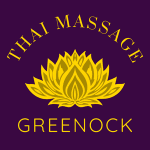

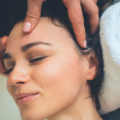
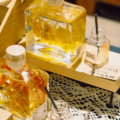
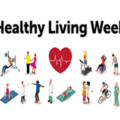
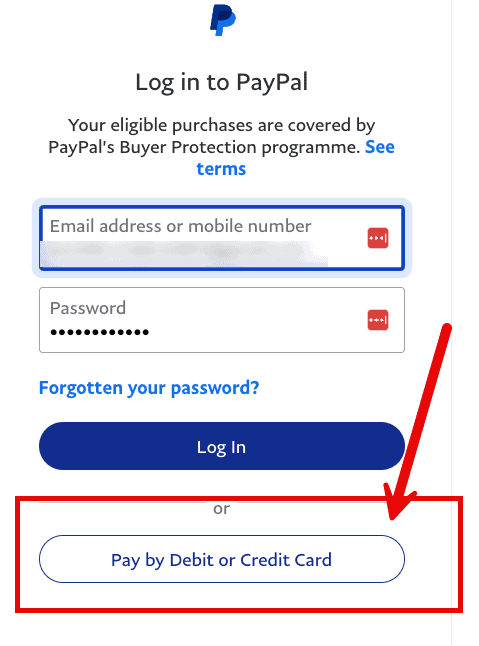
There is an interesting (and awful) connection to iron. Check out this paper:
The coronavirus produces these “extra” helper proteins that aren’t even part of the virus itself. It sends the proteins out into the blood to attach to our red blood cells and remove the heme iron. This reduces the ability of our RBCs to deliver oxygen to the rest of our body, so even if you’re on a ventilator and having fresh oxygen pumped into you, your ability to utilize that oxygen and deliver it via RBCs is reduced.
This is probably why coronavirus patients are often presenting with elevated ferritin levels: the iron is removed from the RBCs and has to be stored as ferritin.
I’m not in a position to say if eating more heme iron can help overcome the virus’ tendency to remove it from your red blood cells. I can imagine that early intervention with anti-virals or perhaps chloroquine could help before the virus gets really embedded. I can imagine that fresh blood transfusions could help.